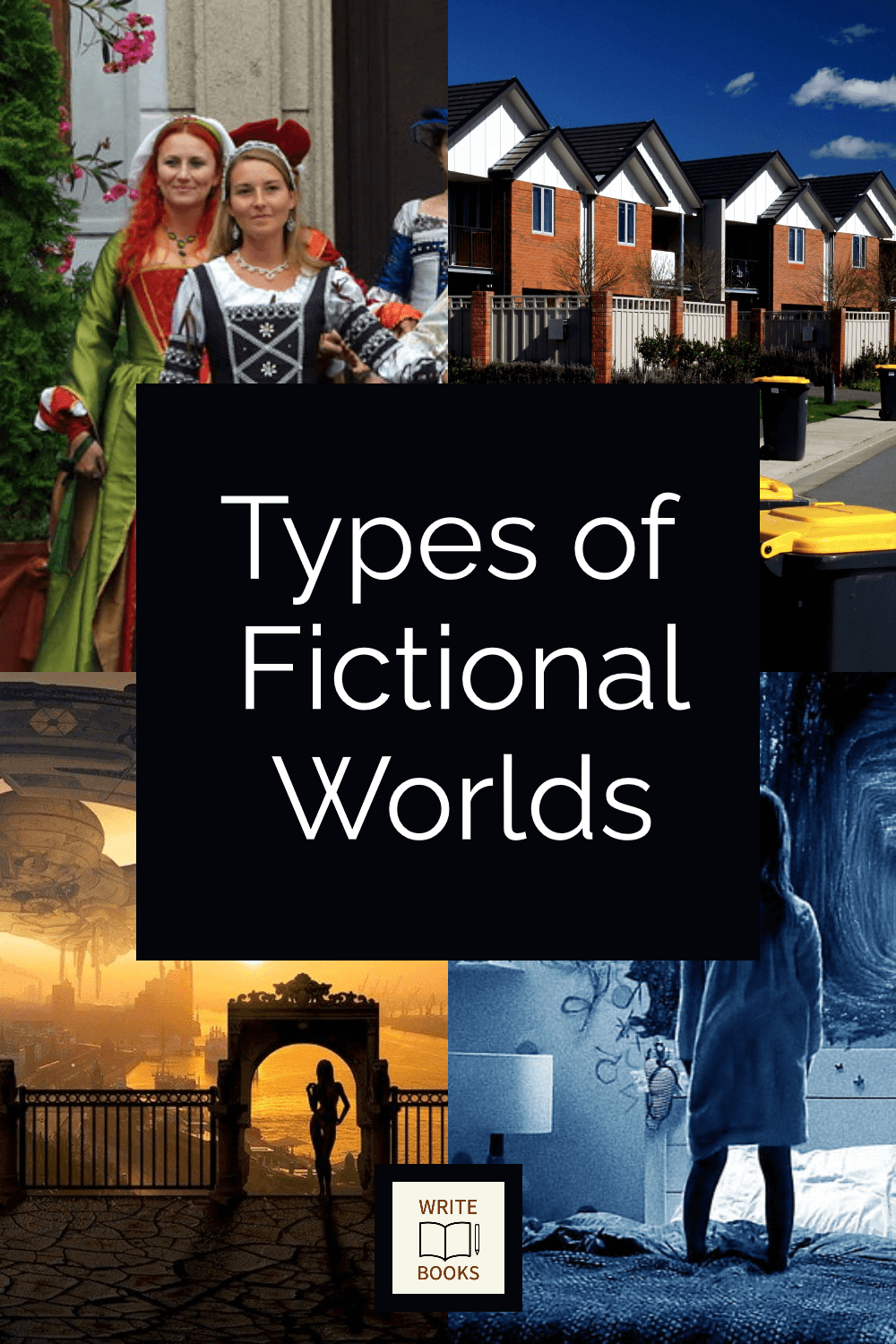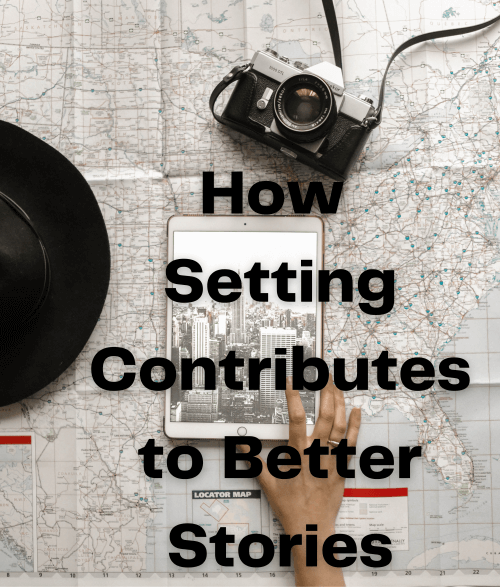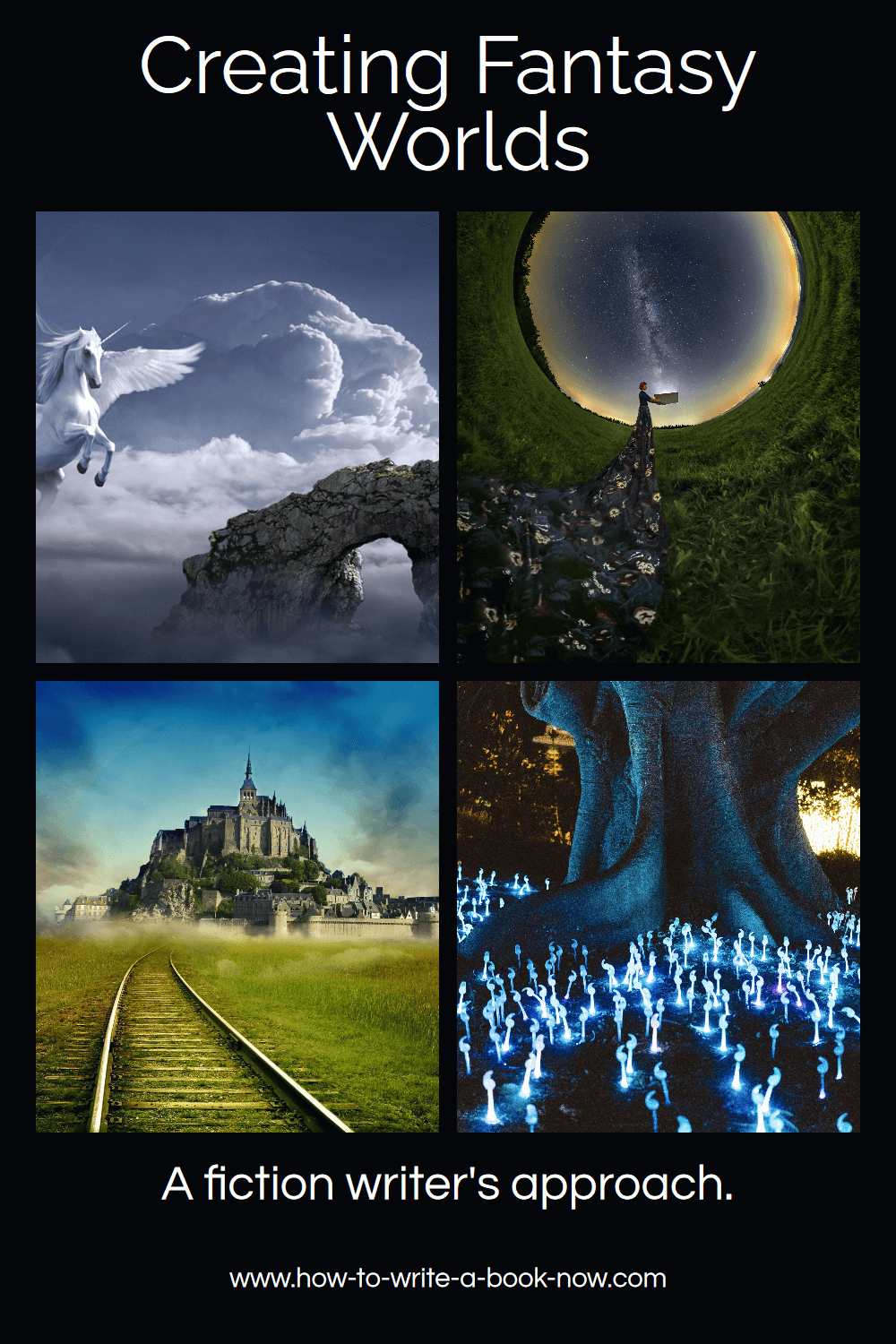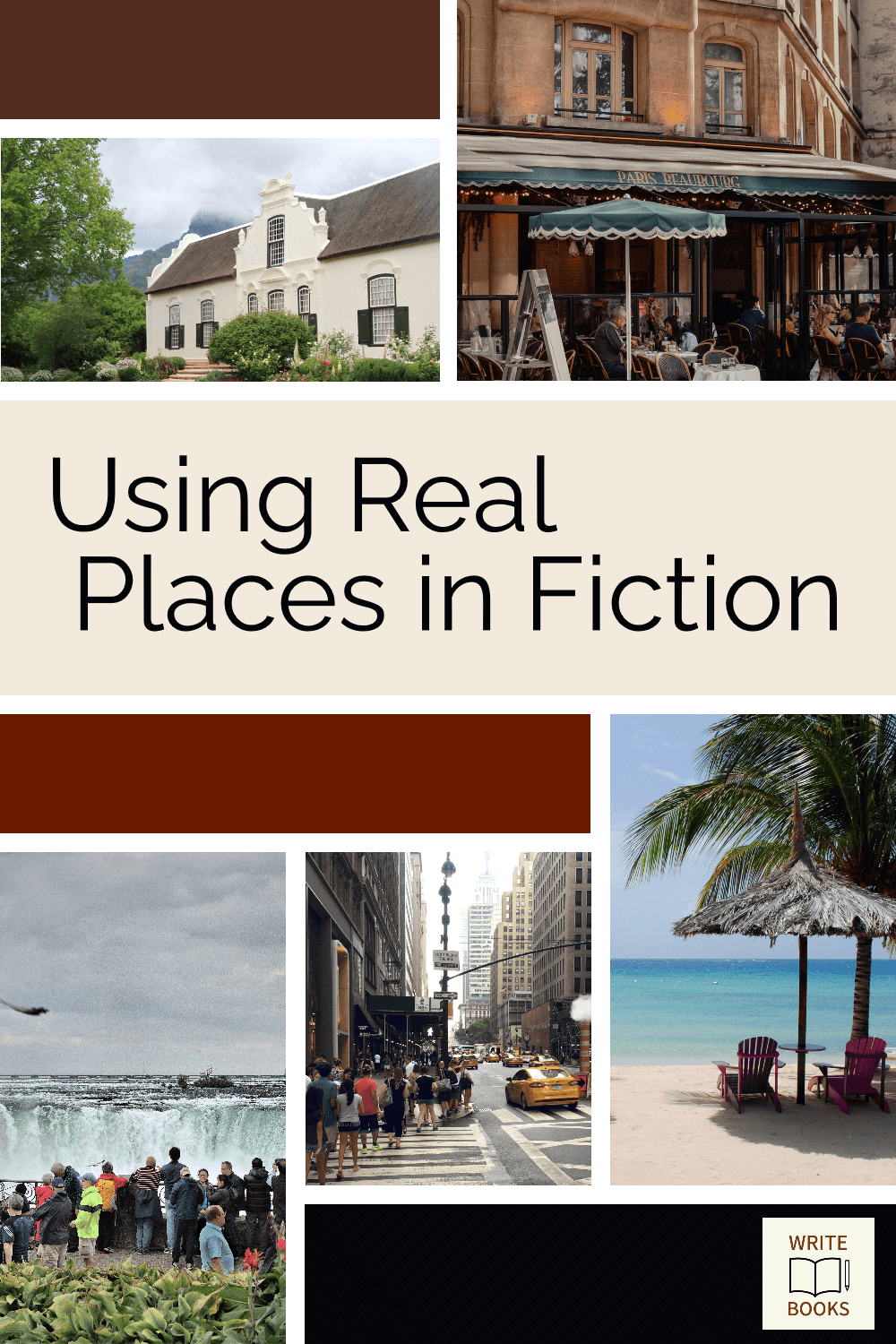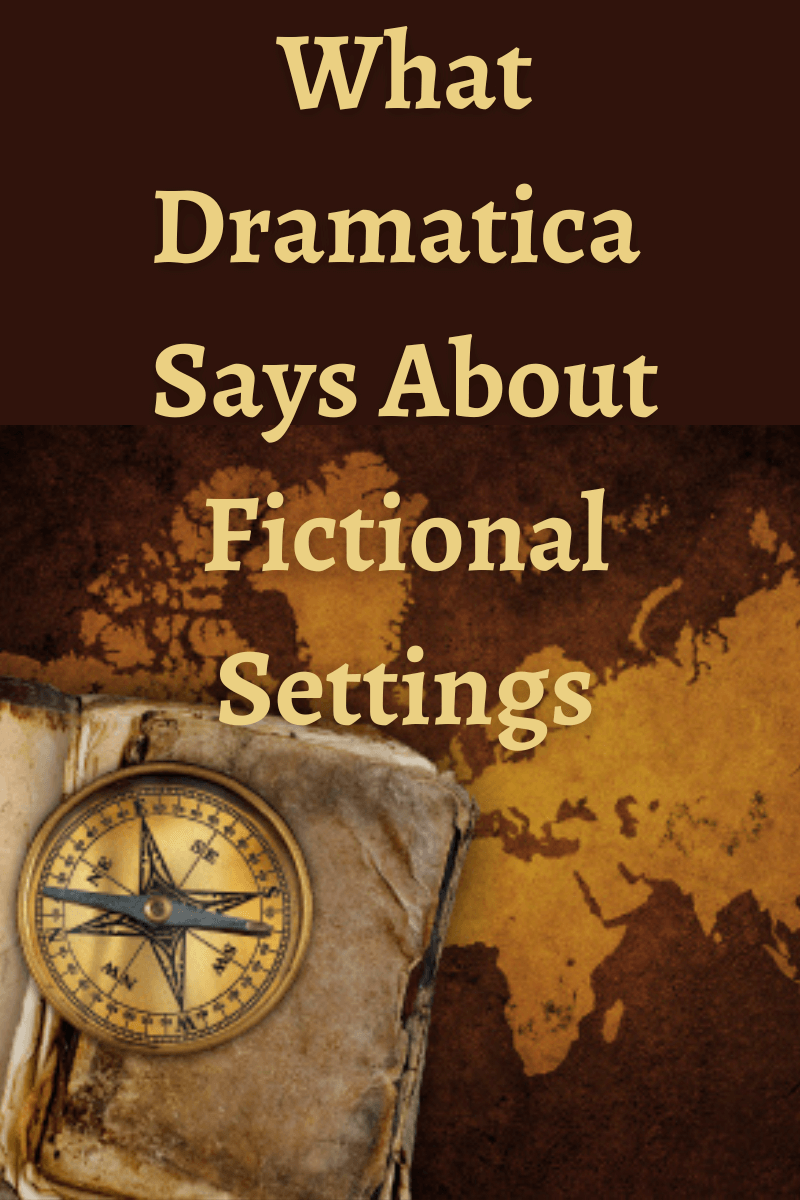Soft vs Hard Worldbuilding: Which Do You Choose?
By Glen C. Strathy
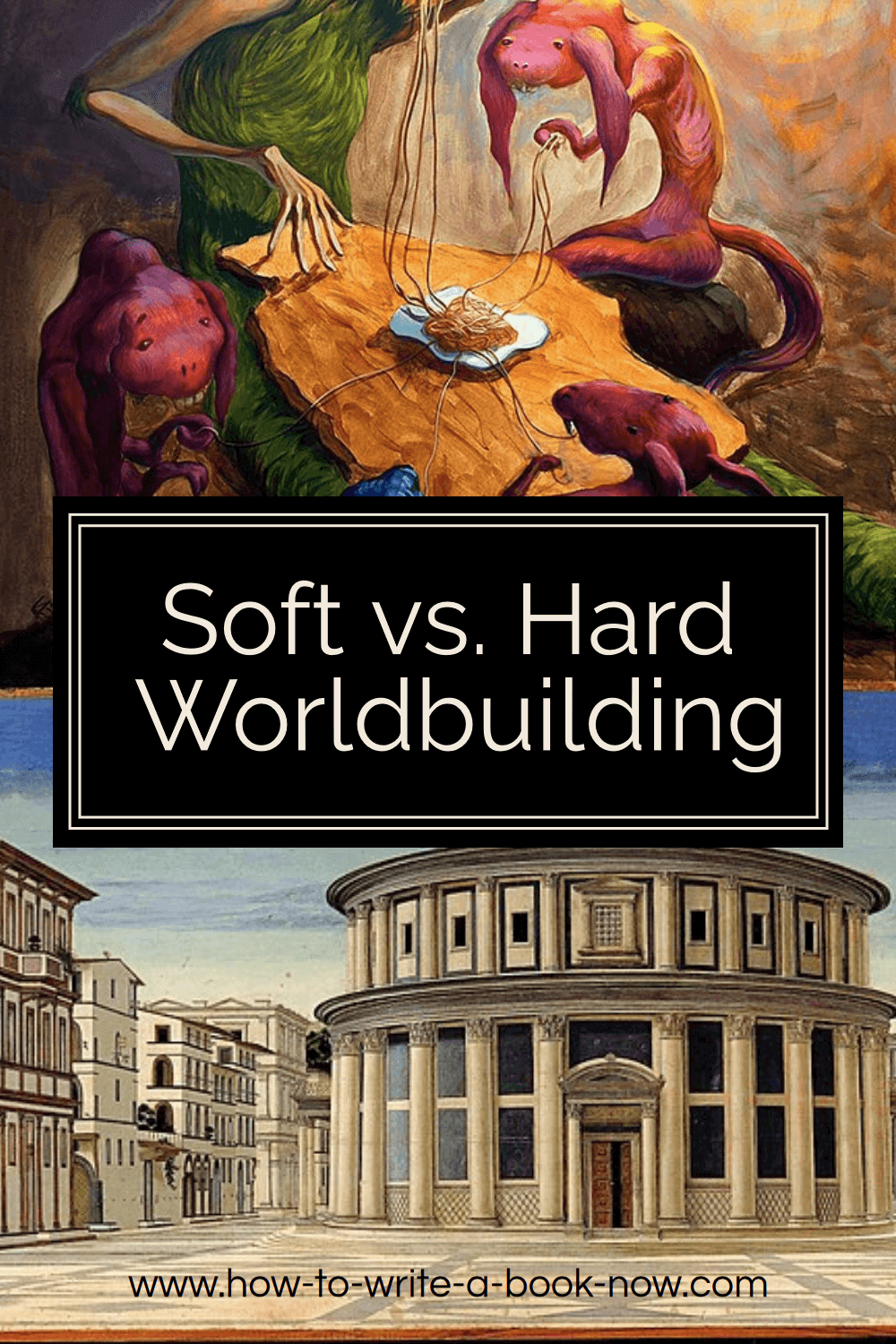
If you're writing a fantasy novel, you must decide early on whether to use soft vs hard worldbuilding. Both are valid approaches for creating a fantasy world, but they have different requirements and offer quite different experiences to the reader. Most importantly, you will use a different writing process when you engage in soft worldbuilding rather than hard worldbuilding.
So let's look at the differences between soft vs hard worldbuilding, what makes each of them appealing, and the practicalities of using either method.
Hard Worldbuilding: When the Writer Knows Everything
Hard worldbuilding is the process of creating a fantasy world about which the author knows everything... virtually everything... enough at any rate to answer any question the reader might ask. Usually, the writer will design the fantasy world in great detail before the first draft of the story is written -- a process that can take a long time.
Most people believe the greatest hard worldbuilder to ever write fiction is J.R.R. Tolkien, who spent a decade creating his fantasy world of Middle Earth in incredible detail. If a reader were to ask about any character in Middle Earth, Tolkien could likely tell them everything about the character's ancestry going back to the dawn of time. He could go into detail about what dialect of what language the character spoke, the history of the character's ancestors and the places they lived, the geography of the world, the culture he was raised in, its myths and legends, etc.
Most of the information Tolkien developed for Middle Earth does not appear in his published novels, The Hobbit and The Lord of the Rings. But after his death, his son, Christopher, published many volumes of Tolkien's background information about Middle Earth and his unfinished stories and poems.
The value in creating so much information about a fantasy world that may never appear in a novel is that it will inform the plot, characters, setting, and other aspects of the story. There will be a continuity among the parts of the world that do appear on the page. While you may continue to make up things about your story world during the writing process, the fact that you know so much about the story world means you are less likely to insert something that will contradict something else that appears earlier or later in the story.
It also means you have a wealth of details that you can mention at any point in the story in order to make a scene or a place seem more authentic. When the reader encounters a brief mention of something that the writer seems to know all about (because they do), it makes the story world feel more real and also creates a little mystery. The reader becomes interested in finding out more about the story world as the story progresses..
Because there is a continuity to all parts of the story world, the reader will get the sense there is more to the world to be discovered -- either as the story unfolds or perhaps in sequels. They can enjoy immersing their imagination in the fantasy world, confident that it all makes sense.
Hard worldbuilding appeals to the type of reader who is naturally curious about the real world. Some people love to learn about the world and how it works. They may enjoy studying history, nature, geography, culture, or the sciences. They may love to travel to parts unknown -- or become an armchair traveller. They love acquiring an understanding of how the world works. Delving into fantasy fiction gives them an opportunity to do the same thing with a fantasy world.
For some readers, a good fantasy world is more fun to learn about than the real world -- because of its imaginative departures from reality. A fantasy novel lets the reader enjoy the vicarious experience of characters who lead interesting lives which the reader follows at the same time as they explore the fantasy world. Plus, it usually takes less effort for a reader to get a complete understanding of a fantasy world than the real world, so a fantasy novel can provide a more immediate sense of accomplishment.
Soft Worldbuilding: When the Writer Knows Nothing (Well... Almost Nothing)
Soft worldbuilding is a method of creating a fantasy world that is closer to the "pantser" method of writing. That is, the writer makes up facts about the story world during the writing process, according to the emerging needs of the story, with little advance planning.
A writer who is a soft worldbuilder may know almost nothing about the story world other than what appears on the page. Soft worldbuilders aren't interested in creating a big, consistent story world in which everything makes sense and fits together logically. They don't make up extensive background or backstories. They aren't interested having answers to the readers' questions about "why" strange things happen in the story or why some elements of the story world do not follow the laws of physics. Instead, they are more concerned with creating an aesthetically pleasing world or an emotional atmosphere in which mysteries remain mysteries.
Suppose you want to write a fantasy story about someone who befriends or owns a winged horse and flies to distant places on the horse's back. Obviously, this is unrealistic. The bigger a winged animal is, the more muscle mass it needs to flap bigger wings -- and to flap them hard enough to generate the lift required to get a big animal off the ground. But more muscle mass adds to the weight of the animal, which adds to the amount of lift required. Bigger wings will also add weight. So the addition of bigger wings and muscles leads to diminishing returns. At a certain point, an animal will be too heavy to fly. For this reason, a winged horse could not exist in the real world, and could never carry a human passenger through the air.
A hard worldbuilder writing about a winged horse might come up with some explanation for why the horse was able to fly. Perhaps the horse's bones are made from some ultra-light, ultra-strong material. Perhaps it lives on a planet where the gravitational force is less. Or perhaps the winged horse taps into some magical force unique to the story world that generates lift. Of course, a magical force would require some explanation as to its source, how it worked, what it could and couldn't do, which beings could harness it and which couldn't, etc.
A soft worldbuilder, on the other hand might offer no explanation at all for why a winged horse can fly in a fantasy world. All that matters is what the flying horse offers to the story. Perhaps the flying horse serves as a manifestation of the character's (and the reader's) desire to experience joy and freedom. Or it may be that flying on a winged horse is a dividend that appears when the character needs a morale boost to continue with their mission. If anyone asks, "How can the horse fly?" the only answer is, "It's a fantasy. It's not supposed to be explainable."
Soft vs Hard Worldbuilding: Two Different Ways of Experiencing the World
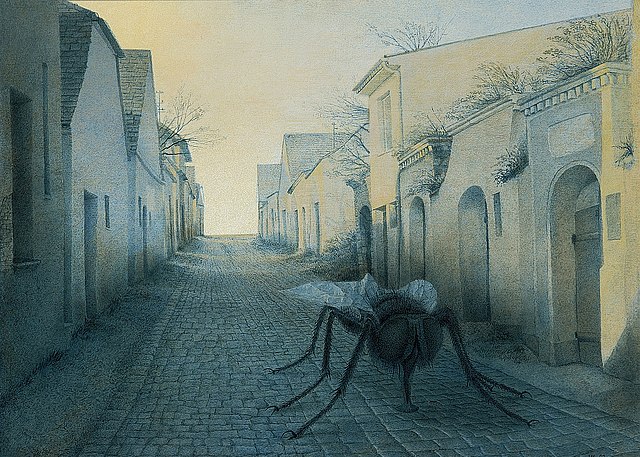 An example of surrealism in art: Die Fliege in der Kellergasse by Gemälde von Hanno Karlhuber, 1984.
An example of surrealism in art: Die Fliege in der Kellergasse by Gemälde von Hanno Karlhuber, 1984.When considering the appeal of soft vs hard worldbuilding, I believe one of the key differences between them is that they express different ways of understanding the world.
Hard worldbuilding is based on the belief that the world is rational. The real world follows certain rules (i.e. the laws of physics) that do not contradict each other. A fantasy world might have different rules, but the rules still need to be consistent. Part of the fun of reading stories set in hard build fantasy worlds is being able to suspend disbelief -- to pretend the world could be real. So, like the real world, the fantasy world must make sense. Fans enjoy the experience of seeing how, the more they learn about a fantasy world, the more sense it makes. It may be complex, but it works logically, and that makes it more plausible.
Soft worldbuilding, on the other hand, is based on the view that the world is irrational. Let me explain this a little.
As children's minds develop, they pass through different stages. At one stage of their development (generally between 2-7 years), children do not understand the separation between their inner world (thoughts, feelings, and impulses) and the outer world.
If it rains, a child may believe it is because they are sad -- that their sadness causes the rain.
If a child is angry with their brother, and their brother dies from an accident or disease, the child may believe their anger caused their brother's death. They may also believe that if they wish hard enough or behave better their dead brother may come back to life. In other words, they see their outer world as a reflection of their inner world.
At a later stage in their development (generally 8-12 years), children acquire the understanding that the outer world (and their community) behaves according to certain rules regardless of their feelings. Children at this age love learning what the rules are so they can predict what will happen. They learn, "If I behave this way, something will happen. But if I behave that way, something different will happen." Moreover, if they are living in a community or family where people follow the rules (laws, morality, principles, etc.) they know they have certain rights and freedoms. They don't lose those rights because some adult is in a bad mood, for example. This gives them greater safety and control over their life. During these years, they are building an understanding of the world based on reason.
As adults, we often have both worldviews in our consciousness -- the rational and the irrational. Adults often seek seek a balance between the two. If our life is chaotic and we feel we have no control over it, we may enjoy escaping to a hard fantasy world where everything is orderly and makes sense.
On the other hand, a person who spends much of their time doing work that requires a very rational approach may crave an escape to a world of imagination. They may enjoy immersing themselves in fantasy stories that take place in an irrational but more meaningful world. One reason people prefer soft vs hard worldbuilding may be the kind of escape they feel more in need of.
So while some readers enjoy hard worldbuilding because it results in a fantasy world that is rational and internally consistent, other readers enjoy soft worldbuilding in which the fantastical elements create an emotional response or atmosphere that may reflect the character's inner experience and journey.
A fan of softly built worlds may enjoy reconnecting with the worldview they had as a child -- a view that the world is more magical than adult life permits. They may enjoy escaping to a world where anything can happen. They may like the idea that their feelings can connect them to a greater reality outside themselves. They may relish the sense of wonder and the surrealistic effect that soft worldbuilding creates.
That doesn't mean people who like soft vs hard worldbuilding are childish. A soft world may present a very adult version of the view that the world is irrational. But it is a different worldview than is expressed by hard worldbuilding.
In short, for some readers, the irrational nature of a soft fantasy world is a feature rather than a bug.
Tips on Using Soft vs. Hard Worldbuilding
Here are a few tips you may find helpful when you are trying to decide whether to use soft vs hard worldbuilding in a writing project...
1. Follow Your Own Interests
What types of fantasy worlds interest you most as a reader? Do you prefer books where the author clearly knows everything about the fantasy world and it all makes sense? Or do you prefer books that use fantastical elements to create an emotional or aesthetic atmosphere where nothing needs to make sense?
Or, to put it another way, what bothers you most about soft vs hardworldbuilding? Do you hate it when the fantasy world doesn't stand up to logical scrutiny? When things don't make sense or aren't properly explained, does that take you out of the story? Or do you find that a rational and consistent story world diminishes your experience of wonder? Are you more fascinated by an imaginative world that doesn't follow logic or rules?
2. Are you a pantser or a plotter?
Do you prefer to plan your stories in detail ahead of time or write without planning and just see what emerges?
Sometimes, hard worldbuilding has the advantage of preventing writer's block because, by the time you start writing your story, you have decided much about the story world your characters will discover.
Sometimes soft worldbuilding has the advantage because anything can happen. You are not tied to "what makes sense" and can follow your emotional impulses as you write.
3. If you're a hard worldbuilder, resist the urge to explain everything.
Tolkien knew a lot about Middle Earth, but he was wise enough to leave most of what he knew out of his novels. Too much exposition, too much information about the story world, can slow the pace of a novel and take attention away from the characters, their efforts, and their conflicts.
You need to include enough information for the reader to understand the story, but no more. It's okay if a few mysteries are unexplained. Maybe you can explain them in a sequel.
Along those lines, avoid "infodumps" -- long passages of description or exposition. Just tell the readers the facts they need to know, when they need to know them, to understand what's going on. Try to include a few "telling details" rather than lengthy lectures or essays.
4. If you're a soft worldbuilder, anchor your story in the mundane.
One problem that can arise if you choose soft vs hard worldbuilding is that a story world where "anything" can happen can feel so ungrounded that it becomes difficult to tell a story. How can your characters accomplish objectives, for example, in a world that is completely unpredictable? And if they are not pursuing objectives, but simply are the victims or subjects of random irrational events, does their personality start to feel nebulous too?
One way of grounding a soft story world is to create a realistic, mundane world as a backdrop into which the fantastic elements enter. For instance, if you're going to have a winged horse, perhaps the rest of the world is very realistic and the main character has to deal with mundane problems like how to care for and feed the horse, finding a good veterinarian or blacksmith, earning the money to pay stable fees, etc.
Exploring the boundary between soft vs hard worldbuilding...
One type of fantasy story that plays into some readers' love of the irrational is magical realism.
As the name suggests, stories in the magical realism subgenre are set in a world that balances soft vs hard worldbuilding in order to create surrealistic effects and express an irrational view of the world.
In magical realism, the story world is largely mundane and normal. The setting is usually present day or a recognizable period. And the story will be about ordinary people in ordinary situations. However, added to this setting will be one or more elements that are completely irrational and fantastical. What adds to the surrealistic effect is how the irrational elements are treated as normal by the characters.
For instance, Terry Bisson's short story, "Bears Discover Fire," takes place in a realistic version of contemporary USA in which a man is experiencing the death of his mother. The theme of the story concerns how traditions are disappearing -- traditions like families sitting around a campfire and men fixing their own tires. The fantastical enters the story when bears, filling in the gap left by humans, discover fire and start spending their evenings sitting by campfires.
John Chu's story "The Water That Falls on You From Nowhere," is about a young gay man coming out to his conservative Asian parents. The "magical" aspect of this otherwise realistic story is that, for some reason, every time a character tells a lie, water magically comes from nowhere and falls on their head. Thus the water symbolizes the price of deceit.
In neither of these stories is there any explanation of the magical or fantastical elements. And the characters, for the most part, calmly accept that the fantastical is happening. In both stories, one senses that the writer doesn't know anything more about the strange happenings or their origins than what the reader learns. So a reader who wants a rational story world to explore will be disappointed. Nonetheless, a reader who wants a story that lets them escape from reason and have a purely emotional experience with a story can easily enjoy them.
- Home
- Write a Novel
- Setting
- Soft vs Hard Worldbuilding
